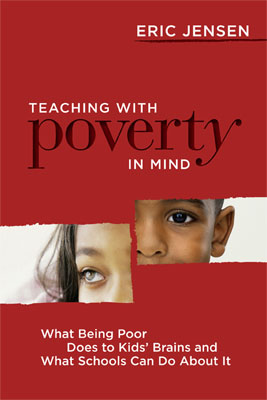Every few weeks we are reading a chapter, and then we are meeting to discuss. The first chapter is basically an introduction to the various types of poverty, and defining poverty. There were a few quotes that really stuck out to me, and interesting conversation that ensued afterwards.
The author defines poverty as "a chronic and debilitating condition that results from multiple adverse synergistic risk factors and affects, the mind, body, and soul” p. 6
It is a good reminder to me to think about all the risk factors that weigh into students' lives who are truly living in poverty. Poverty is by far not only a financial situation, but something much deeper. When we stop to think of all the things kids are up against (violence in the neighborhood, poor nutrition, lack of family support, etc, etc., etc.) ....it becomes clear how it could affect the mind, body, and soul. I think this perspective is important to keep. This leads me to two questions about my teaching practice. We will see if any answers come out of the rest of the book. My two questions raised were:
1) The section on teaching practice noted a change in school culture, to one of empathy, and understanding, rather than pity. I want to keep this in mind, myself, on a more regular basis, but I also want to think about how this change could take place on a larger scale, and what specifically, this would look like.
2) I also wonder, especially with the importance of understanding being noted above, how to best bridge the gap that is present in many cases between the culture of urban poverty, and those faculty and staff who are not from that culture. I think understanding is important, but how best to reach that understanding. I think some level of understanding is relatively easy, but how deep of an understanding can be reached without a shared experience? There is really a disconnect between this culture of poverty and the culture of school and higher education that we want students to be prepared for.
You can actually read chapter 1 and 2 here
Whether you have read the book or not, please chime in with your thoughts. I would be curious to hear from those who teach in high-poverty districts and those who don't.





















































